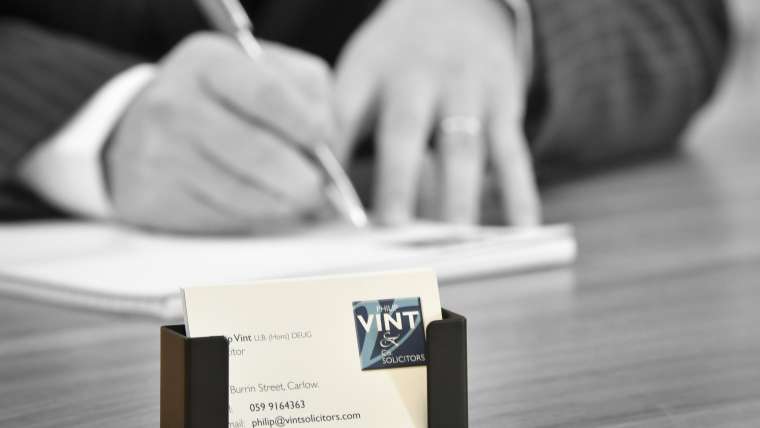Back in 1985 Aretha Franklin released a hit song called ‘Who’s Zoomin’ Who’. We had no idea over three and a half decades later that ‘Zoom’ would become so important.
What is Zoom? It is basically one of a number of programmes that allows you to meet several people by a video call. For the purpose of this article, I am using ‘Zoom’ as an example of the various platforms available. One person called a ‘host’ will set up a meeting and send you a link. Once you have the Zoom app or programme, you can simply click on the link and you will join the meeting. You will need a mobile phone or a computer with a camera such as a laptop. Computers tend to have an advantage over mobile phones in two senses. Firstly, there is obviously a bigger screen with a computer. Secondly, if there are more than 4 participants or screens joining the meeting then you can still see everyone at the same time on a computer, whereas the mobile phone will allow you to see only 4 people at a time which will include the person speaking. Mobile phones have their own plus points too; they often have better video and audio quality and can have a better battery life compared to a laptop.
Before taking part in formal meetings, it is well worth having practice Zoom meetings with friends or relatives just to get used to it. Personally speaking, I have found Zoom meetings incredibly useful, effective and also great at saving time. Before Zoom, if we needed a meeting with our barrister and client this might mean a journey from Carlow to Dublin. This can now be done without any travelling at all. My client can be on the south coast, our barrister can be in Dublin and I can be in my office in Carlow. Online meetings have huge advantages over telephone calls; most psychologists will tell you that at least half of our communication as humans is non-verbal and facial expressions are crucial in this.
Online court hearings in Ireland are becoming more widely available. The Courts use a programme which is fairly similar to Zoom called ‘Pexip’.

I have set out some tips and hints when using either Zoom or Pexip as follows:
– Start to login in early. If you need to boot up a computer, you should start this about 15 minutes before the meeting time. This gives extra time for any issues such as a low battery or poor internet connectivity
– Make sure your video is enabled so that you can be seen
– You must observe the same formalities as if you were in court or in a formal meeting. Examples of this would be appropriate dress, appropriate language, no eating, no background music/noise and no pets
– It is a good idea if at all possible to have a back up device. If the battery or wi-fi fails on a laptop, you can switch to your back up mobile phone
– If you are online with just a small number of people, it is usual for all microphones to be kept switched on. As the number increases, the host might mute all microphones and it then becomes an element of discretion as to which microphones are unmuted. Similarly, you can mute and unmute yourself. If you need to speak, you can raise your hand. There is a facility on Zoom which allows you to raise an on screen hand too
– Be aware of your background. If you are against a window, this might cause a silhouette. You might also need to adjust lamps and lighting
– In a court scenario you might need to be sworn in to give evidence. Some parties will affirm, but others will prefer to swear on the Bible or appropriate religious text. If so, these need to be kept nearby
– Zoom has a ‘chat’ facility. If you are using it, be aware that everyone can see it
– Close apps or programmes that are not needed. This can help improve your connectivity
On 18th May 2020 the Dublin Circuit Family Court office issued 2 guides for ruling judicial separation and divorce applications on consent. On 21st January 2021 the President of the High Court issued a notice for Remote Personal Injury Hearings for Dublin. Both of these can be seen as models as to hearings across Ireland and I have set these out below:
Dublin Circuit Family Court office on 18th May 2020:
STEPS FOR VMR (Virtual hearing) SCHEDULING
FOR NEW MOTIONS for J.S. & DIVORCE ON CONSENT
The VMR App is Pexip. This can be downloaded for PC’s, tablets or. mobiles and requires a wi-fi” [note: it can also be accessed via a
browser]
1. Solicitor for the Applicant should file the Notice of Motion as. standard in triplicate. It should include a cover letter with the following information:
– The case reference and both parties e-mail address’.
– A requesting that the matter be heard via VMR
– An email or letter from the other side confirming they are happy to proceed via VMR.
– Confirmation from both parties of who will be joining the remote meeting.
– Scanned copies of photo ID for both parties.
2. Both parties will be emailed with a date and time for the VMR and a document containing the guidelines and the access link/code to the hearing.
3. On the date approved parties are advised to log into the VMR approximately 10 mins before their stated time.
4. It is envisaged that individuals will be asked to affirm when giving their evidence.
STEPS FOR VMR (Virtual hearing) SCHEDULING
FOR ADJOURNED MATTERS OR DATES IN THE FUTURE
for J.S. & DIVORCE ON CONSENT
The VMR App is Pexip. This can be downloaded for PC’s, tablets or mobiles and requires a wi-fi” [note: it can also be accessed via a browser]
1. One of Legal representatives involved in the case should E-mail dublincircuitfamilylaw@courts.ie and include ‘VMR REQUEST’ in the subject box and confirm:
– The case reference and the date which it was due before the Court.
– That both parties are consenting to the matter proceeding via VMR
– There is no change in the consent terms and they are ready to rule.
– Scanned photo ID for both parties.
– Confirm who will be attending the remote hearing for ‘both parties’.
**The email must cc the other party or provide their e-mail address in the correspondence**
2. Both parties will be emailed with a date and time for the VMR (usually within a couple of days) and a document containing the guidelines and the access link/code to the hearing.
3. On the date approved parties are advised to log into the VMR approximately 10 mins before their stated time. It is envisaged that individuals will be asked to affirm when giving their evidence.
Remote Personal Injury Hearings for Dublin
1. Personal Injuries actions will only be listed for a remote hearing if the consent of both parties has been notified to the Court at a call over of the cases for the following week to take place on the preceding Wednesday the first such call over to be on Wednesday the 27th January.
2. Depending on demand, the Court will list up to four such cases each day – priority to be given to the cases already fixed for hearing in the Hilary Term.
3. In respect of any case scheduled for a remote hearing, the solicitor for the plaintiff shall, by 12 noon on the Thursday preceding the week in which the action is listed for hearing, deliver to the List Room (i) a book of pleadings (ii) a booklet containing all expert reports (iii) a booklet containing any other documentation or materials which either party proposes to introduce into evidence or put to a witness in the course of their examination/cross examination and (iv) a schedule of special damages.
4. The trial judge will not consider any of the documentation delivered to the List Room, save for the booklet of pleadings, until such time as the case commences whereupon the parties can advise the court of any agreement reached as to the basis upon which regard might be had to any expert report or other document.
5. A remote hearing should not be sought in any case in which it is proposed to introduce any document by way of surprise or where a party is unwilling to disclose, in advance, any material upon which they intend to rely.
6. In consultation with both branches of the profession, the efficacy of such hearings will be reviewed on an ongoing basis.

Virtual hearings and online meetings are now possible for us as our technology improves. Change can sometimes bring about a little trepidation, but these advances are here to stay and in my view we should embrace them.
© Philip Vint & Co Solicitors 2021

